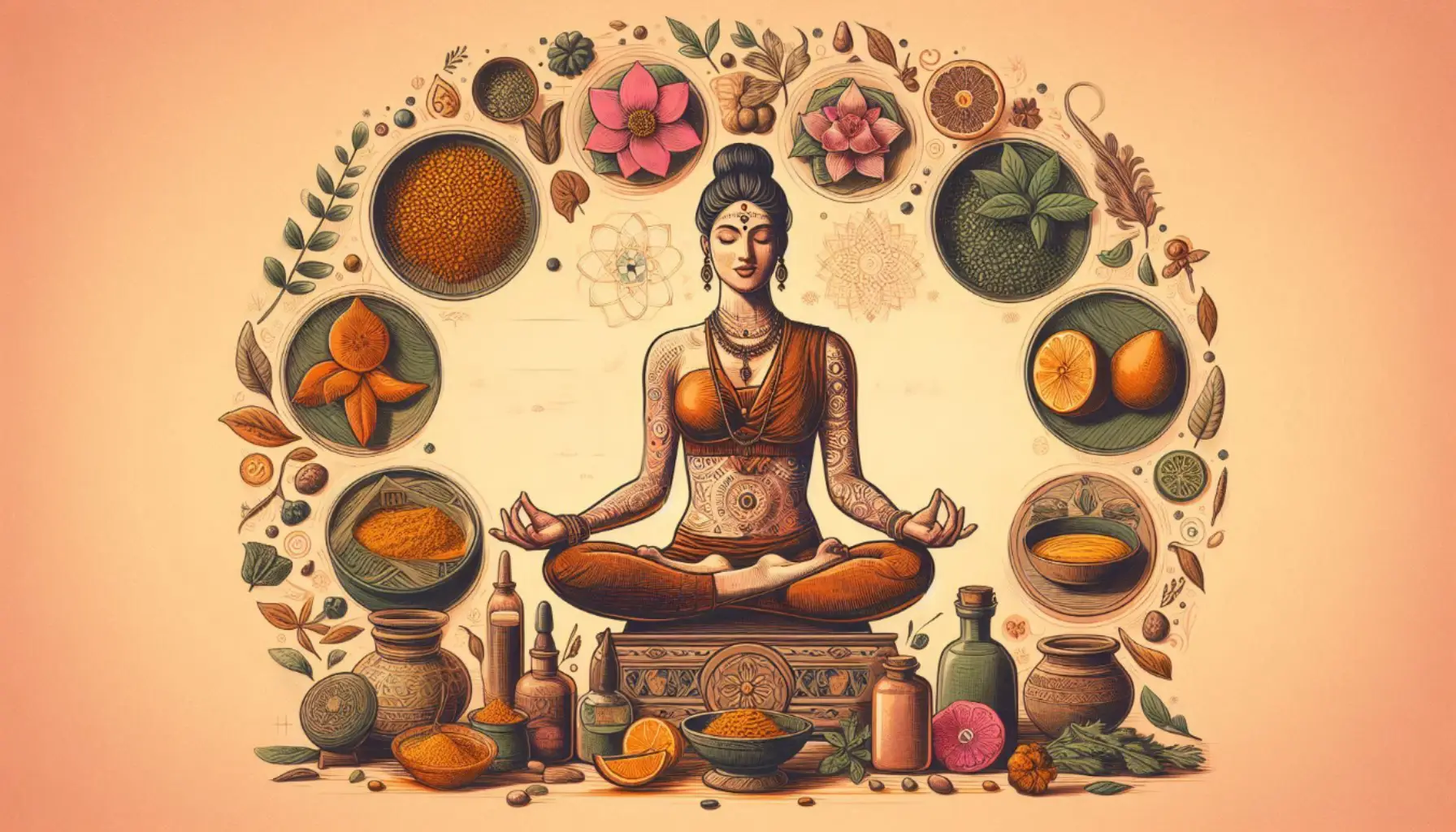What is Ayurveda? A Comprehensive Guide to Ancient Healing
Discover Ayurveda, an ancient holistic healing system from India that balances mind, body, and spirit through natural practices.

Introduction
Ayurveda, often referred to as the “Science of Life,” is a holistic healing system that originated in India over 5,000 years ago¹. This ancient practice focuses on achieving balance and harmony within the body, mind, and spirit through natural and holistic approaches. In this blog post, we’ll explore the fundamentals of Ayurveda, its principles, and how it can benefit modern life.
Understanding Ayurveda
The term “Ayurveda” is derived from the Sanskrit words “Ayur” (life) and “Veda” (science or knowledge)³. It is based on the belief that health and wellness depend on a delicate balance between the mind, body, spirit, and environment⁴. Unlike conventional medicine, Ayurveda emphasizes prevention and encourages the maintenance of health through lifestyle practices and natural therapies.
The Three Doshas
Central to Ayurvedic philosophy are the three doshas: Vata, Pitta, and Kapha. These doshas are energy types that govern physiological activity in the body:
- Vata: Associated with movement and air, Vata controls bodily functions related to motion, including blood circulation and breathing.
- Pitta: Linked to fire and water, Pitta governs digestion, metabolism, and energy production.
- Kapha: Connected to earth and water, Kapha is responsible for growth, immunity, and stability.
Each person has a unique combination of these doshas, which determines their physical, mental, and emotional characteristics². Imbalances in the doshas can lead to health issues, and Ayurveda aims to restore balance through personalized treatments.
Ayurvedic Practices
Ayurveda employs a variety of practices to promote health and well-being:
- Diet and Nutrition: Personalized dietary plans based on one's dosha type to maintain balance and prevent disease.
- Herbal Remedies: Use of natural herbs and plants to treat ailments and enhance health.
- Yoga and Meditation: Incorporating physical postures, breathing exercises, and meditation to harmonize the body and mind.
- Detoxification: Techniques like Panchakarma to cleanse the body of toxins and rejuvenate the system.
Benefits of Ayurveda
Ayurveda offers numerous benefits, including:
- Holistic Health: Addresses the root cause of health issues rather than just symptoms.
- Personalized Care: Treatments tailored to individual needs and constitutions.
- Natural Healing: Utilizes natural remedies and practices, reducing reliance on synthetic drugs.
- Preventive Approach: Emphasizes prevention and maintenance of health through balanced living.




Conclusion
Ayurveda is more than just a medical system; it’s a way of life that promotes harmony and balance. By understanding and applying Ayurvedic principles, individuals can achieve optimal health and well-being. Whether you’re looking to prevent illness, manage stress, or enhance your overall health, Ayurveda offers a comprehensive and natural approach to living a balanced life.
By integrating these insights into your lifestyle, you can harness the ancient wisdom of Ayurveda to lead a healthier, more balanced life. If you’re interested in exploring Ayurveda further, consider consulting with a qualified Ayurvedic practitioner to tailor a plan that suits your unique constitution and needs.
Links:
Post Tags :

